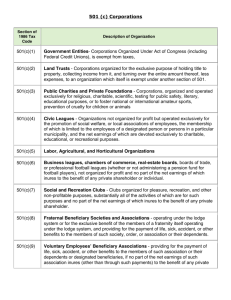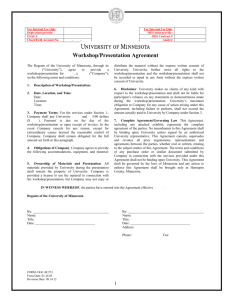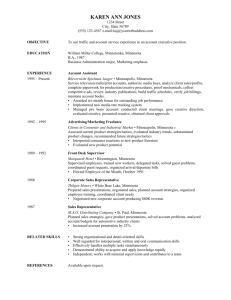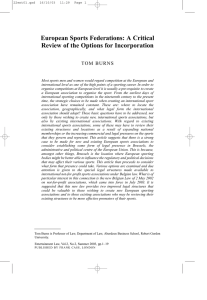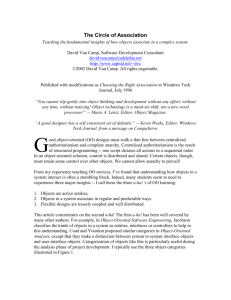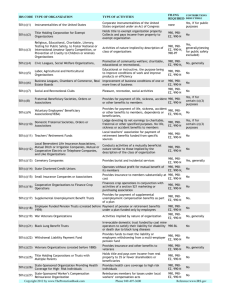501 C 3 Basics
advertisement
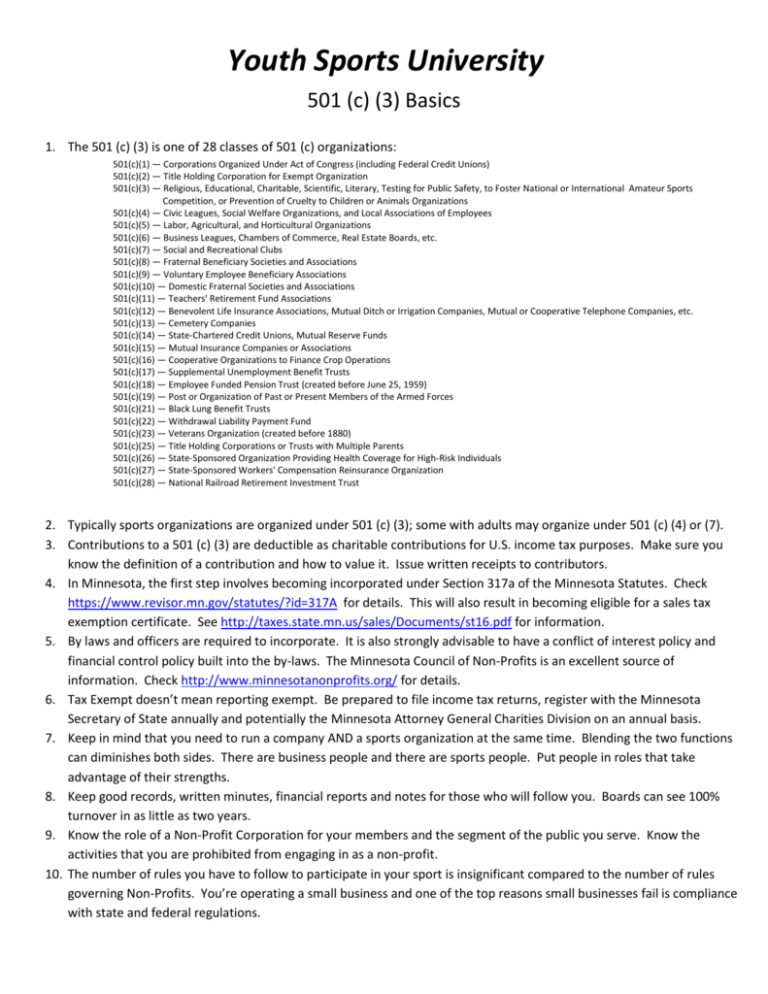
Youth Sports University 501 (c) (3) Basics 1. The 501 (c) (3) is one of 28 classes of 501 (c) organizations: 501(c)(1) — Corporations Organized Under Act of Congress (including Federal Credit Unions) 501(c)(2) — Title Holding Corporation for Exempt Organization 501(c)(3) — Religious, Educational, Charitable, Scientific, Literary, Testing for Public Safety, to Foster National or International Amateur Sports Competition, or Prevention of Cruelty to Children or Animals Organizations 501(c)(4) — Civic Leagues, Social Welfare Organizations, and Local Associations of Employees 501(c)(5) — Labor, Agricultural, and Horticultural Organizations 501(c)(6) — Business Leagues, Chambers of Commerce, Real Estate Boards, etc. 501(c)(7) — Social and Recreational Clubs 501(c)(8) — Fraternal Beneficiary Societies and Associations 501(c)(9) — Voluntary Employee Beneficiary Associations 501(c)(10) — Domestic Fraternal Societies and Associations 501(c)(11) — Teachers' Retirement Fund Associations 501(c)(12) — Benevolent Life Insurance Associations, Mutual Ditch or Irrigation Companies, Mutual or Cooperative Telephone Companies, etc. 501(c)(13) — Cemetery Companies 501(c)(14) — State-Chartered Credit Unions, Mutual Reserve Funds 501(c)(15) — Mutual Insurance Companies or Associations 501(c)(16) — Cooperative Organizations to Finance Crop Operations 501(c)(17) — Supplemental Unemployment Benefit Trusts 501(c)(18) — Employee Funded Pension Trust (created before June 25, 1959) 501(c)(19) — Post or Organization of Past or Present Members of the Armed Forces 501(c)(21) — Black Lung Benefit Trusts 501(c)(22) — Withdrawal Liability Payment Fund 501(c)(23) — Veterans Organization (created before 1880) 501(c)(25) — Title Holding Corporations or Trusts with Multiple Parents 501(c)(26) — State-Sponsored Organization Providing Health Coverage for High-Risk Individuals 501(c)(27) — State-Sponsored Workers' Compensation Reinsurance Organization 501(c)(28) — National Railroad Retirement Investment Trust 2. Typically sports organizations are organized under 501 (c) (3); some with adults may organize under 501 (c) (4) or (7). 3. Contributions to a 501 (c) (3) are deductible as charitable contributions for U.S. income tax purposes. Make sure you know the definition of a contribution and how to value it. Issue written receipts to contributors. 4. In Minnesota, the first step involves becoming incorporated under Section 317a of the Minnesota Statutes. Check https://www.revisor.mn.gov/statutes/?id=317A for details. This will also result in becoming eligible for a sales tax exemption certificate. See http://taxes.state.mn.us/sales/Documents/st16.pdf for information. 5. By laws and officers are required to incorporate. It is also strongly advisable to have a conflict of interest policy and financial control policy built into the by-laws. The Minnesota Council of Non-Profits is an excellent source of information. Check http://www.minnesotanonprofits.org/ for details. 6. Tax Exempt doesn’t mean reporting exempt. Be prepared to file income tax returns, register with the Minnesota Secretary of State annually and potentially the Minnesota Attorney General Charities Division on an annual basis. 7. Keep in mind that you need to run a company AND a sports organization at the same time. Blending the two functions can diminishes both sides. There are business people and there are sports people. Put people in roles that take advantage of their strengths. 8. Keep good records, written minutes, financial reports and notes for those who will follow you. Boards can see 100% turnover in as little as two years. 9. Know the role of a Non-Profit Corporation for your members and the segment of the public you serve. Know the activities that you are prohibited from engaging in as a non-profit. 10. The number of rules you have to follow to participate in your sport is insignificant compared to the number of rules governing Non-Profits. You’re operating a small business and one of the top reasons small businesses fail is compliance with state and federal regulations.


